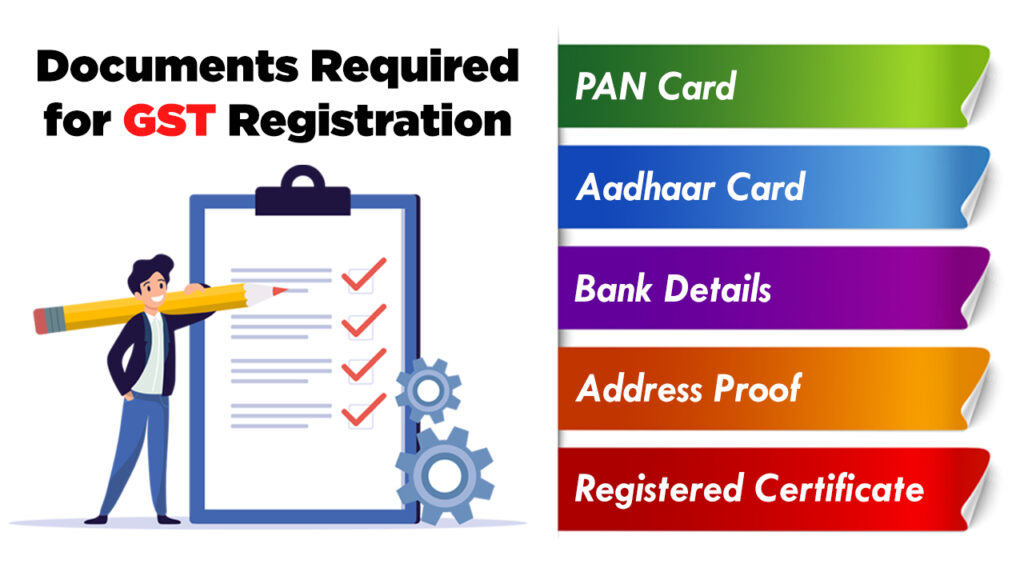CFO Account & Services: Your Trusted Partner for Hassle-Free GST Registration in Singapore
Throughout: A Thorough Summary of GST Enrollment and How to Effectively Register Your Business
Navigating with the complex procedure of GST registration can be an important step for any type of organization seeking to establish compliance and legitimacy out there. Why choose CFO Account & Services for GST registration in Singapore. From understanding the fundamental concepts of GST to fulfilling the eligibility requirements and collecting the needed documents, the trip towards successful registration can commonly appear like a complicated task. Nevertheless, with the right advice and insights, services can simplify this procedure and unlock the benefits that feature being a signed up entity.
Comprehending GST and Its Significance
Recognizing the Goods and Provider Tax (GST) and its importance is crucial for organizations operating in economic situations where this tax system is implemented. By allowing organizations to declare input tax obligation debts on the tax obligation paid on purchases, GST guarantees that taxes are calculated only on the value included at each stage of the supply chain.
Furthermore, GST promotes conformity and transparency in the tax obligation regimen, minimizing tax evasion and increasing government revenue. It simplifies tax administration and compliance for companies by giving a common system for tax obligation filing and payment. Overall, a comprehensive understanding of GST is critical for businesses to successfully navigate the intricacies of the tax system and make sure compliance with the legislation.
Eligibility Requirements for GST Registration
To register for GST, companies should meet particular qualification requirements detailed by the tax authorities. The main requirement for GST registration is that the organization's aggregate turnover goes beyond the limit established by the government, which varies by state. As of the present guidelines, organizations with a yearly turnover of Rs. 40 lakhs or even more in most states have to sign up for GST. For companies running in northeastern states and hilly areas, the limit is Rs. 20 lakhs. Additionally, certain organizations, such as those included in inter-state supply of services or items, laid-back taxable individuals, and non-resident taxed persons, are required to register for GST no matter their turn over.
Moreover, businesses entailed in providing products or solutions with shopping systems are likewise mandated to register for GST, irrespective of their turnover. Companies that were signed up under the previous tax obligation regimen, such as Barrel, excise responsibility, or solution tax, need to change their registration to GST. Following these eligibility standards is essential for services looking for to adhere to the GST regulations and prevent any charges for non-compliance.
Papers Required for GST Enrollment
When looking for GST enrollment, companies need to ensure they have all the needed papers in order to complete the process efficiently and effectively. The vital documents required for GST enrollment consist of evidence of service registration or consolidation such as the Certificate of Incorporation, partnership act, or registration certification. Additionally, companies this contact form need to offer proof of address for the principal business, which can be supported by papers like an energy bill or a rental arrangement.
In addition, files verifying the identity and address of the promoters or partners associated with business, such as frying pan card, Aadhaar card, or key, are essential for GST registration. Savings account declarations or canceled cheques showing the name of the account, business, and address number are also mandatory to validate the savings account details provided throughout enrollment.
Making sure all the necessary records are in order and conveniently available will improve the GST enrollment procedure and assistance companies stay clear of issues or hold-ups.
Online Enrollment Refine for GST

After finishing the form, supporting documents need to be uploaded according to the standards supplied. These records generally consist of evidence of company enrollment, address proof, bank declarations, and identity evidence of business proprietor. It is important to make certain that all records are clear, legitimate, and uploaded in the specified layout to avoid delays in the registration process.
As soon as the application and documents are sent, companies can track the standing of their GST registration online. If there are no concerns or additional info called for, the GST Read Full Article registration certificate will certainly be released electronically, marking the effective conclusion of the online enrollment procedure.
Post-Registration Compliance and Tips

Organizations ought to remain updated on any type of modifications in GST regulations, rates, or conformity treatments to make necessary changes quickly. Seeking expert support from tax obligation experts or accountants can likewise aid services navigate complicated GST conformity requirements successfully.
Conclusion
To conclude, the procedure of GST registration is crucial for companies to abide with tax policies and run legally. By comprehending the qualification criteria, collecting the necessary files, and finishing the online registration procedure, companies can efficiently register for GST. It is necessary to stay certified with post-registration needs and seek specialist assistance when required to guarantee smooth procedures.
Businesses that were registered under the previous tax obligation routine, such as Barrel, import tax task, or solution tax, have to transition their registration to GST. The vital documents needed for GST enrollment consist of proof of business registration or consolidation such as the Certification of Incorporation, partnership action, or registration certificate.Upon successful completion of the GST registration procedure, businesses should quickly adhere to post-registration compliance needs to keep governing conformity and make sure smooth operations.In conclusion, the procedure of GST enrollment is crucial for organizations to conform with tax policies and operate legitimately. By recognizing the qualification criteria, collecting the essential papers, and completing the online enrollment procedure, services can successfully register for GST.